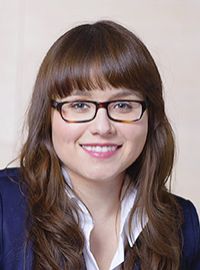A New Germany: Cemile Giousouf, The First Turkish Muslim MP Of Angela Merkel’s Christian Democrat Party

Thirty-five-year-old, brunette and bespectacled, Cemile Giousouf made history this past week – she is the first Muslim MP in Germany’s Bundestag (parliament) who belongs to Chancellor Angela Merkel’s center-right Christian Democratic Union (CDU) party, now entering its third straight term in power.
In the election, Germans of Turkish descent won eleven seats in the Bundestag, including five from center-left Social Democratic Party (SPD), three from the leftist Green party, and two for the far-left Die Link (The Left) party. Giousouf was the lone CDU MP of Turkish descent.
Turks, now numbering at least 3 million (the largest ‘foreign’ community in the country by far), have lived in Germany for fifty years, originally invited as ‘gastar-beiter’ (guest workers) by the German government reeling from post-war labor shortages.
About 1 million Turks are now German citizens, and approximately 750,000 are eligible to vote.
Now, in 2013, whole neighborhoods in Berlin, Frankfurt, Dusseldorf and other cities are completely Turkish. In connection with their permanent settlement in Germany, some Turks have entered politics at the local and national level – however, until the emergence of Giousouf, all of them represented left parties like the SPD, or the Greens, and others. (Indeed, the most famous Turkish-origin politician in Germany, Cem Ozdemir, is co-chairman of the Greens).
Giousouf, born in Germany to ethnic Turkish parents from Greece, might represent a new kind of Turk – one who feels “German” enough to attach herself to a conservative, nationalist political party. In this respect, she could be compared to Nikki Haley, the Indian-American governor of South Carolina, and a rising star in the conservative Republican party of the U.S.
Giousouf grew up in Leverkusen, and studied politics in Bonn, according to Deutsche Welles (DW). She became involved with the CDU through an organization they sponsored called the German-Turkish Forum, in the state of North Rhine-Westphalia.
"In the beginning, I thought like many other people, that the CDU wasn't a party where immigrants could feel at home," she told DW. "But since 2005 much has changed in the CDU. Integration has been declared a top priority."
Indeed, some Turks appear to be moving rightward in terms of their political views and affiliations as they become second and third-generation middle-class Germans, far from the factory worker lifestyles of their parents and grandparents.
A poll by DTJ-Online, a news website for Germans of Turkish origin, revealed that Turkish support for Merkel’s CDU party has jumped from 21.6 percent to 31 percent in just four years. Meanwhile, ethnic Turkish support for SPD declined from 50 percent in the 2009 election to 43 percent (and far lower than the 60 percent from ten years ago).
A Turkish-born doctor in Berlin named Hikmet Gulmez told The Financial Times that he has gravitated away from SDP to CDU.
“I identify with the CDU. It has values that I share,” he said. “This is a party with values,” adding that the conservative foundation of CDU appeals to many Turks.
Fatih Köylüoglu, a Turkish CDU activist, commented to FT that SPD does not necessarily support the interests of minorities. “People look at various party programs and notice that the media image of the SPD as the party that supports minorities isn’t right,” he said.
Indeed, just prior to the election, Giousouf spoke to the Anadolu news agency of Turkey about the appeal of CDU to her community.
“There has been a significant change in the CDU’s approach towards immigrants,” she said.
“This is not only symbolic. The CDU is strongly investing in integration policies, policies towards immigrants. We would like to ensure equal chances for all, particularly in education and employment.”
Giousouf, who represents the western German town of Hagen, told Anadolu that the priorities and interests of German-Turks are evolving, including a greater focus on taxes and the economy.
“Turkish immigrants had traditionally voted for the Social Democrats in the past, the majority of them were blue-collar workers,” she explained. “But the new generations of Turkish immigrants are now coming from different socio-economic backgrounds and accordingly have different criteria in deciding which party to vote for.”
Nonetheless, many Turks in Germany have been alienated by a number of CDU policies – including a staunch rejection of Turkey joining the European Union, limits on immigration and denial of dual-citizenship for Turkish immigrants.
But Giousouf insists that the CDU is not a monolith, citing that some CDU members, including former integration minister Armin Laschet, support dual citizenship for Turkish immigrants and other issues.
“It is my hope and belief that after the elections this issue of dual-citizenship will be discussed in our party again,” Giousouf told Anadolu. “We, as politicians with immigrant backgrounds, will definitely support this. I believe that the CDU will gain more support from Turkish immigrants in the future, if we can introduce a change here.”
Giousouf also said she was heartened by the support and enthusiasm she witnessed from younger Turks, suggesting the next generation may increasingly move to the political right.
She also explained to DW that there was no conflict between a Muslim belonging to a party called ‘Christian’ Democrat.
“Religious people, whatever religion they belong to, have shared interests. Both Muslims and Christians in Germany want for example to have religion taught at school,” she said. "The Greens, by contrast, do not. Instead, they want lessons in ethics."
© Copyright IBTimes 2024. All rights reserved.




















